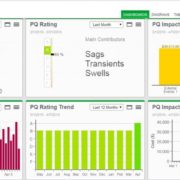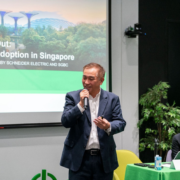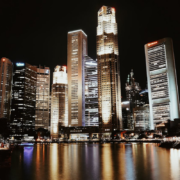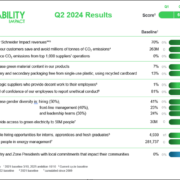Companies Investing to Raise Renewables in Energy Mix as Carbon Concerns Grow
A new study by Schneider Electric has found that more than half of companies in Singapore are contemplating investments to increase their sources of clean energy. In a January 2025 survey of more than 500 senior business leaders, 57 percent said they were planning to invest in solar power by 2030. The respondents also indicated plans to invest in hydropower (40 percent), bioenergy (29 percent), mobile nuclear[1] (26 percent) and wind energy (16 percent).[2]
This proactive stance is being driven partially out of a need to curb electricity-related emissions. Six in 10 business leaders said over half of their Scope 1 and 2 emissions come from electricity consumption. Among business leaders with plans to invest in renewable energy sources, the most cited motivation for the investment was the need to meet emissions targets.

Mechanisms for investments in solar, the most popular technology, included self-funded on-site installations (among businesses operating on owned premises), as well as the exploration of co-funding options with landlords or tenants (among businesses operating on leased premises).
Carbon concerns are also being fuelled by rising electricity use, with 82 percent of Singapore business leaders anticipating that their organisations will consume at least 10 percent more electricity this year than they did in 2020. Digital technologies, particularly AI, was the top reason for this; followed by the growing electrification of various systems and business growth leading to a larger operational footprint.
Nevertheless, business leaders said they would continue investing in digital technologies and AI. Seven in 10 said they expected these technologies would help them cut their emissions in the long run. Survey respondents came from 19 different industries; and included board members, C-suite executives, directors and senior managers from small, medium, and large local and multinational corporations. All are involved in leading the sustainability strategies for their organisations.
The results of the survey were presented at Schneider Electric’s Innovation Day 2025, a premier stakeholder event where industry leaders gather to network and share best practices. This year’s theme, “Scaling Up for a Net-Zero Singapore”, reinforces the company’s commitment to partnering with local organisations to support their transition to a low-carbon future.
Energy Management Systems Gaining Acceptance
To address rising electricity consumption and emissions levels, business leaders are showing a readiness to adopt various new technologies. Currently, half of all those surveyed said their businesses are using energy management systems. When asked which other energy management technologies they would be keen on, 52 percent of respondents said they hoped to make an investment in battery storage systems and 49 percent said they would invest in smart grids.
Challenges to Raising Renewable Energy Mix
Although 96 percent of companies have set renewable energy targets, confidence of meeting these goals was low. Only 30 percent were highly confident of achieving their 2025 targets, and 29 percent believed they would meet 2030 targets. Respondents cited the high cost of renewable energy investments (31 percent) and the need for technology upgrades (24 percent) as challenges they faced. The availability of renewable energy in Singapore is also a hurdle, they said.
Against that backdrop, Yoon Young Kim, Cluster President Singapore and Brunei, said: “Given the importance of decarbonisation to our planet, the public and private sector must deepen the conversation on what it takes to raise the portion of renewables in the energy mix for businesses in Singapore. Digital technologies can play an important role in energy management and decarbonisation. Many of these technologies are mature, proven and economically viable for businesses. This study is part of Schneider Electric’s efforts to understand our stakeholders and their concerns, so we can better cater to their needs and advance progress on sustainability.”












